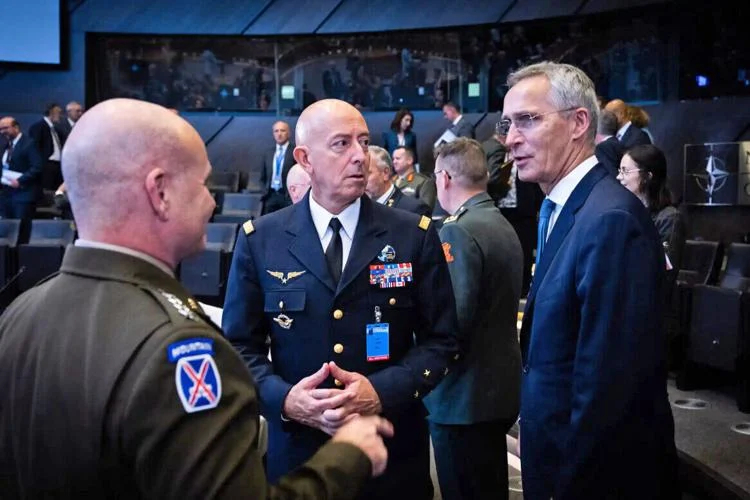
Brussels, Belgium – NATO defense ministers gathered in Brussels today to address a wide range of pressing global security issues. While the Ukraine and Middle East situation dominated the discussions, the meeting also touched upon various other vital matters.
The meeting occurred at NATO headquarters, where Secretary General Jens Stoltenberg highlighted several critical topics discussed during a news conference following the ministerial.
One of the key areas of focus was the ongoing situation in Ukraine. Secretary of Defense Lloyd J. Austin III attended the meeting and chaired a session of the Ukraine Defense Contact Group immediately before the NATO ministerial.
The alliance ministers also addressed various NATO missions and operations, particularly in the Western Balkans and Iraq. In response to heightened tensions in Kosovo, NATO has deployed additional reserve forces to the Kosovo Force (KFOR) operation. KFOR is now conducting increased patrols in the northern part of Kosovo to fulfill its U.N. mandate impartially.
Leaders in Serbia and Kosovo were encouraged to act responsibly, avoid destabilizing actions, and re-engage in the European Union-sponsored dialogue as the path to lasting peace in Kosovo.
In Iraq, NATO’s mission is expanding its support for Iraqi security institutions to prevent the resurgence of the Islamic State of Iraq and Syria (ISIS). Stoltenberg announced the appointment of Assistant Secretary General Tom Goffus as a special coordinator for counterterrorism to ensure NATO’s strong and effective response to terrorism.
The defense ministers also discussed plans to enhance alliance defenses, building upon the agreements made during the NATO Summit in Vilnius, Lithuania, last summer. These plans include assigning necessary forces, developing new capabilities, and adjusting command and control structures.
Russia’s actions in Ukraine prompted discussions about the role of NATO’s nuclear weapons in deterring aggression. Next week, NATO will conduct its annual nuclear exercise, Steadfast Noon, over Italy, Croatia, and the Mediterranean Sea, ensuring the credibility, effectiveness, and security of the alliance’s nuclear deterrent.
Another matter on the agenda was the damage to critical undersea infrastructure in the Baltic Sea. A gas pipeline and a communications cable connecting NATO allies, Finland, and Estonia, were damaged on October 10, 2023. NATO members, along with Finland and Estonia, will work together to establish the facts behind the incident. If proven to be a deliberate attack on critical infrastructure, it will trigger a united and determined response.
The meeting concluded with Secretary General Stoltenberg emphasizing the need to move forward with the ratification of Sweden’s membership in the alliance. He expressed satisfaction with Turkey’s commitment to finalize Sweden’s accession and urged the Turkish government to submit the accession protocol to the Grand National Assembly for swift ratification.
